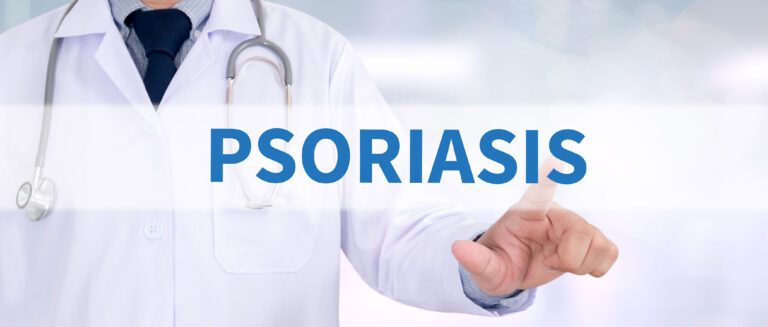Say Goodbye to Plaque Psoriasis: 8 Proven Treatment Options You Need to Know About
Living with plaque psoriasis can be uncomfortable and, at times, embarrassing. However, there is hope for those suffering from this chronic skin condition. A wide array of treatment options, ranging from topical creams to advanced therapies, can offer relief and improve your quality of life.

Start a search today to explore eight proven treatment options that can help you say goodbye to plaque psoriasis and regain control of your skin.
1. Topical Treatments
Topical treatments are usually the first line of defense against plaque psoriasis. They are applied directly to the affected skin and come in various forms such as creams, gels, and ointments. Some of the most common topical treatments include:
- Corticosteroids: These anti-inflammatory medications help to reduce redness, itching, and inflammation.
- Vitamin D analogs: These medications, like calcipotriene, work by slowing down the growth of skin cells.
- Retinoids: Derived from vitamin A, retinoids such as tazarotene help to normalize skin cell growth and reduce inflammation.
2. Light Therapy
Light therapy, or phototherapy, uses controlled exposure to ultraviolet (UV) light to help reduce the symptoms of plaque psoriasis. There are two main types of light therapy:
- UVB light therapy: Narrowband UVB light is the most common form of light therapy for psoriasis. It is effective in treating mild to moderate cases and can be administered at a doctor’s office or with a home light therapy unit.
- PUVA (Psoralen plus UVA): This treatment combines a light-sensitizing medication called psoralen with UVA light exposure. PUVA is typically reserved for more severe cases of psoriasis and requires careful monitoring by a healthcare professional.
3. Oral Medications
Oral medications are used to treat moderate to severe plaque psoriasis and are usually prescribed when topical treatments and light therapy are not sufficient. Some common oral medications include:
- Methotrexate: This drug works by suppressing the immune system and slowing down the growth of skin cells.
- Cyclosporine: Another immunosuppressive medication, cyclosporine, is effective in reducing inflammation and skin cell growth.
- Apremilast (Otezla): This medication specifically targets an enzyme involved in the inflammatory process, helping to reduce redness and scaling.
4. Biologic Therapies
Finding the best remedies for psoriasis symptoms will require an introduction to biologic therapies, which are a class of medications derived from living organisms. These drugs target specific parts of the immune system involved in psoriasis.
Among the top treatments available, Skyrizi, Tremfya, and Cosentyx have shown promising results for many patients. Here’s a breakdown of how each therapy option addresses psoriasis:
- Skyrizi and Tremfya: These biologic therapies target specific proteins in the immune system, helping to reduce inflammation and slow down skin cell overproduction.
- Cosentyx: This approach treats moderate to severe plaque psoriasis by targeting a specific protein called interleukin-17A.
These cutting-edge treatments have provided relief for countless individuals, and with the guidance of a healthcare professional, you can determine the best course of action for your unique situation, paving the way to healthier skin and greater overall well-being.
5. Lifestyle Changes
Since the plaque psoriasis cause lies in the overactive immune system, healthy lifestyle changes can alter your immune response and improve overall skin health. Consuming anti-inflammatory foods such as fruits, vegetables, whole grains, and lean proteins can help reduce inflammation and support overall skin health. Additionally, limiting the intake of saturated fats, sugars, and processed foods may prove beneficial.
Alongside nutrition, engaging in regular physical activity can help reduce stress and maintain a healthy weight, both of which can contribute to improved psoriasis management. Prioritizing sleep and stress reduction techniques, such as meditation or yoga, can further enhance the body’s ability to cope with inflammation and promote skin healing.
6. Systemic Medications
For more severe cases of plaque psoriasis or when other treatments have not been effective, systemic medications may be prescribed. These medications work throughout the entire body to reduce inflammation and slow down the overproduction of skin cells.
Some commonly prescribed systemic medications include methotrexate, cyclosporine, and acitretin.
7. Over-the-Counter (OTC) Remedies
Over-the-counter treatments can be effective in managing mild to moderate symptoms of plaque psoriasis. Some OTC remedies include coal tar shampoos and creams, salicylic acid ointments, and hydrocortisone creams.
While these treatments can provide relief, it is essential to consult a healthcare professional before using them, as some may cause skin irritation or interact with other medications.
8. Alternative and Complementary Therapies
Alternative and complementary therapies, such as acupuncture, herbal supplements, and homeopathy, may provide relief for some individuals with plaque psoriasis. While scientific evidence supporting these therapies may be limited, some patients have reported positive results.
It is important to discuss these options with a healthcare professional before starting any alternative psoriasis treatment, as they may not be suitable for everyone and can sometimes interact with other medications.
Embrace These Plaque Psoriasis Treatment Options
Managing plaque psoriasis may seem like a daunting task, but with a combination of proven treatment options and lifestyle changes, it is possible to reduce symptoms and improve the quality of life for those affected by this chronic skin condition.
With persistence and the right guidance, you can successfully say goodbye to plaque psoriasis and embrace a more comfortable and symptom-free life.


